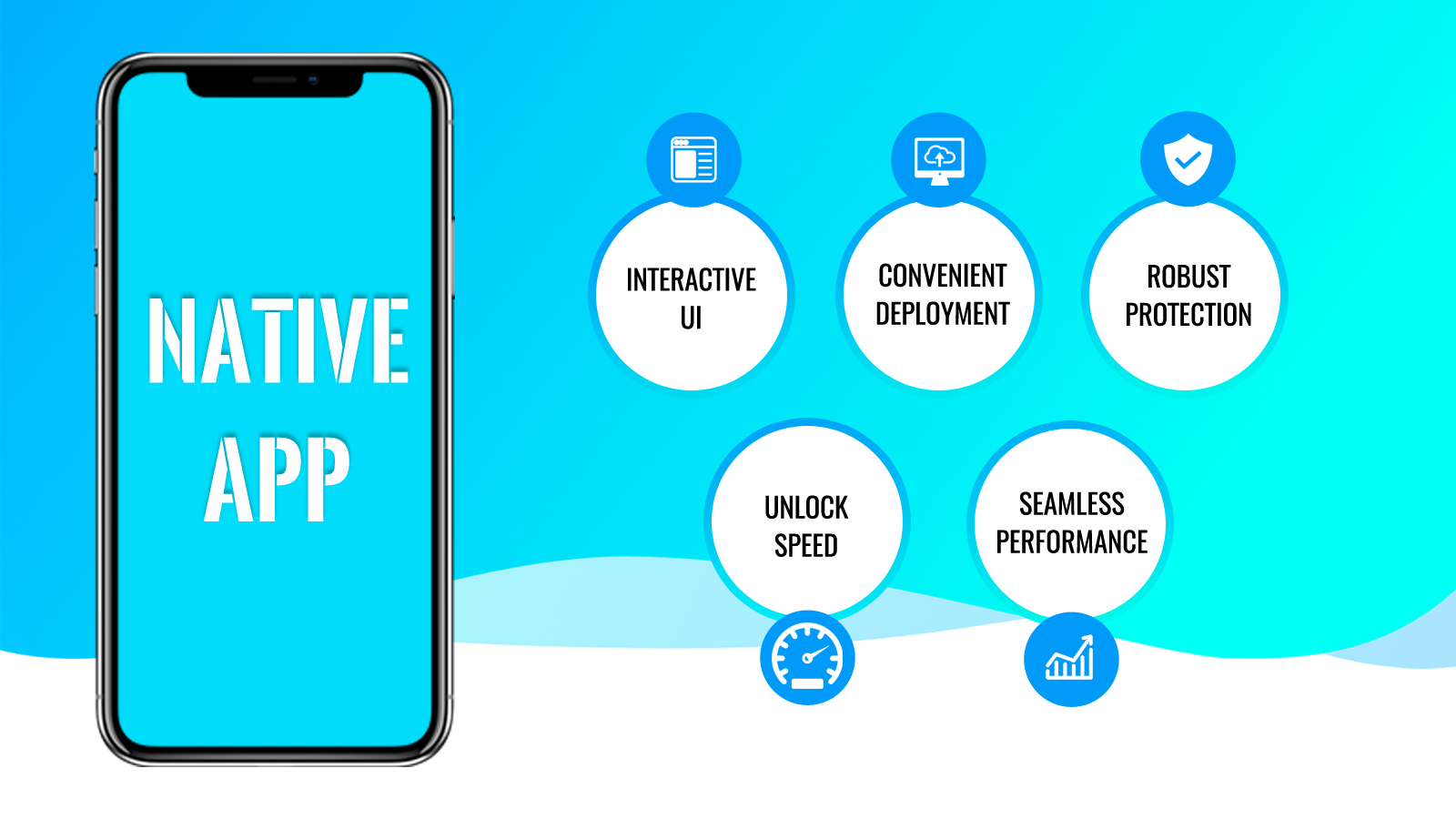Over the last few years, the growth of the smartphone market has exploded. As of 2019, there are more than 2.7 billion smartphone users worldwide. Because of this fact, it is not at all surprising that the smartphone market has rapidly evolved and thrived.
But what do billions of smartphone users do on their devices? To tell the truth, 90 percent of the mobile time is spent on browsing through different applications. And that is definitely the most encouraging news for any business looking forward to developing powerful applications.
All in all, smartphone penetration and app usage are growing steadily without any signs of slowing down in the near future. Right now, many enterprise owners like you invest time and money in building scalable, innovative mobile applications. Today, businesses want to develop applications that can engage, guide, and educate users.
But before embarking on mobile app development, the real challenge lies in picking the right development approach. First and foremost, the most important question you ask is this: Whether the application will be a web-based one, a hybrid one, or a native one?
Among many development approaches available today, many enterprise owners place their bets on native application development. Why? Because this development approach tremendously improves user experience. That is because native app development builds an application for the users of a particular smartphone platform.
So if you are going to invest your time and resources in native application development, you must keep in mind the following things before beginning full-cycle native app development.
Understanding Native App Development
When you create a native mobile application, you develop a program that will run on a specific device or platform such as Android and iOS. The native software is coded in its dedicated programming framework. That way, the application remains compatible only on a particular mobile platform.
For example, if you want to develop an application for iOS, then you must use Swift or Objective-C for writing its code. Likewise, if you want to develop an Android application, then you must use Java and Kotlin.
To be precise, there is a multitude of guidelines for developing applications for a specific platform; the developers must follow these guidelines to the letter for building an intuitive native app. These guidelines are generally related to the platform’s graphics styles, typography, data entry, visual effects, etc.
Enterprises, today, build native applications not only for smartphones but also for desktops, smart TVs, etc. Differing from web applications and websites, native mobile applications cannot run on a browser. If anyone wants to use a platform-specific app, then they will have to download the app from the platform’s app store such as Android’s Google Play or Apple’s App Store. Once the app is downloaded, anyone can access it by tapping on its icon.
Native app development, however, is completely different from mobile website development in terms of technologies and skills used. When you are developing a native app, you will not have to overthink about browser compatibility. That is to say, when a native mobile application is developed, it will be able to leverage different native features found in a mobile’s operating system. Which is exactly why, it is easier for mobile app development companies to implement native functionalities in an app.
Besides building native apps, there is the option of developing hybrid and web apps. A web app is nothing more than an interactive website that a user can easily control, but a hybrid app is a variety of web apps that are developed through CSS, HTML, and other programming frameworks. Once a hybrid app is developed, it is wrapped inside a native framework via dedicated app development platforms such as Cordova.
Now that you know a great deal about native application development, it is time to take a deep dive into this development approach’s benefits.
Why Businesses Trust Native App Development
Seamless Performance Delivered
When you develop a native application, you have a single version of that application running on a dedicated platform. That is, a native application will always be well-optimized to work on a specific platform or operating system. That way, these applications run buttery smooth on a specific platform for which they are built.
The Speed That An App Needs
As a native application is well-optimized for either iOS or Android, it will definitely outperform web apps and native apps by a wide margin. You can see that for yourself by running a couple of speed and performance tests between a native app and its web or hybrid counterpart. For improving the opening time of a native app, you must program the code in a way that it can make the most of a device’s battery and memory.
Intuitive User Experience
Every mobile application has to make a very positive, smooth, and good impression if it does not want to be deleted soon. When you are developing a native app, you can do a lot of things for enhancing its user experience. For instance, integrating gesture support and other functions is easy in a native mobile app. Also, you can design a native app to have better and faster scrolling, eye-capturing animations, and other appealing elements.
Strong Data Protection And Security
Data protection is one of the most sought-after features when you are developing an application. For protecting your app’s data, you must ensure the hardware resource’s full efficiency. And unlocking the full potential of hardware resources is possible with native app development.
When Flexibility Is A Priority
If you want your app to be flexible, then native app development is the way forward. Native apps offer blazingly fast access to other smartphone utilities such as GPS, camera, microphone, calendar, and other functions. The thing is, native apps do not have any restrictions and can implement everything that is possible within the mobile operating system’s framework. So these applications are generally fast and flexible.
Tailor-Made Development Experience
As there are so many Android devices available on the market today, you can even hyper-personalize the development experience. For instance, native app development lets you design an app for a specific range of screen sizes as well. Like that, you can do different customizations while developing a native app that can significantly personalize the experience of end users.
Finding The Right Native App Development Partner
For translating the benefits of native mobile app development from paper to the real world, your business will need the best development partner. That is where Flexsin comes in. This app development company specializes in building highly intuitive native applications for platforms such as iOS and Android.
Flexsin has the expertise of developing applications ranging from food-ordering, money transfer, enterprise, iBeacon to fitness. The company has an excellent track record of delivering applications for different verticals such as wearable, geo-location, utility, e-commerce, e-learning, and the like.
In case you want to develop a groundbreaking native application for your business, Flexsin is the right development and growth partner that can help you realize your vision.


 Ankur
Ankur


